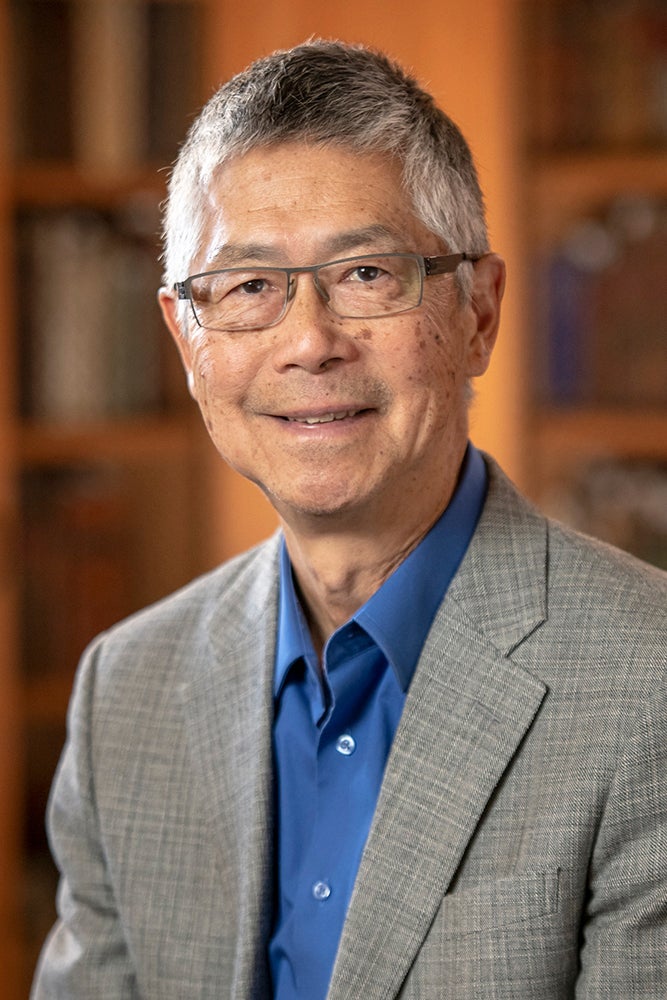Earlier this month, two Asian American communities in California were left devastated by a series of mass shootings during the Lunar New Year: One in Monterey Park, considered America’s first suburban “Chinatown”, and the other at two mushroom farms in Half Moon Bay. At least 18 people were killed and 10 injured in the attacks.
Here, Stanford historian Gordon Chang, whose research examines Asian American history in the U.S. and California, talks about how these recent shootings reveal the anxiety, insecurity, and vulnerability Asian Americans experience – especially during the COVID-19 pandemic when hate crimes targeting Asian Americans rose. Gordon fears that the recent acts of gun violence – in these cases perpetrated by Asian Americans – will only further fear and potentially lead to even more anti-Asian American hate and prejudice.
“Asian Americans in American history have often been seen as quiet and unassuming. Some believe this makes them easy targets for assault, insult, and robbery, and that they won’t respond,” Chang said. “But there is a contrary narrative, which is that Asians can be cruelly violent, irrational, and dangerous – for example, in films such as Apocalypse Now, Kill Bill, Chinatown, and Gran Torino. I fear that these recent incidents will stimulate further anti-Asian fears and cycles of further prejudice and violence.”
It’s now up to all of us to think about how to address gun violence and other injustices, he added.
Chang is the Olive H. Palmer Professor in Humanities in the School of Humanities and Science. In addition to Asian American history, Chang’s research also looks at America-China relations, the Chinese diaspora, and global history. His most recent books examined the history of Chinese railroad workers in America in the 19th century.
This interview has been edited for length and clarity.
As you reflect on the recent tragic events in Monterey Park and Half Moon Bay, what history is important for people to know about the Asian American experience in California?
As has been reported, these horrible events are unusual – the ages of the victims and perpetrators for example. But they also are part of a history of mass violence inflicted upon Asian Americans. From the mid-19th century to the present, their experience is replete with incidents of mass violence, including massacres, mass murders, expulsions, and personal assaults. During the past few years, Asian Americans have been targeted for violence. More than 11,000 incidents have been reported, including killings, beatings, and even acid burning. Recall that in March 2021, eight people, six of whom were Asian women, were shot and killed in Atlanta. In May 2022, a gunman shot six Taiwanese Americans in a church in Irvine.
How do recent events fit into that narrative?
There is a notion that all Asian Americans live secure, successful lives. These events show otherwise, and reveal the terrible insecurity, fear, and vulnerability in these communities. Monterey Park is one of the most well-known Asian American communities in the country and Half Moon Bay is just a short drive from Silicon Valley with its Asian American neighborhoods. The shootings show us a reality beyond the stereotype of successful and professional Asian Americans.
What else was different about these shootings and how they affect the Asian American community?
The perpetrators of these incidents were themselves Asian American. In most other incidents, the killers were non-Asian and apparently motivated by racial hatred, such as the shooter at the 1989 Stockton school year assault that took the lives of five Southeast Asian children and wounded 32 others. There is evidence that Asian Americans have accumulated more guns than ever during the past few years as a response to the violent incidents of anti-Asian hate. Gun dealers around the country have noted the increase in sales to Asian Americans, a community that traditionally had a relatively low incidence of ownership. The shooter in Half Moon Bay bought his weapon just two years ago.
What makes the timing of the shootings – during Lunar New Year celebrations – particularly difficult for Asian Americans?
The timing is shocking and devastating. Lunar New year celebrations are traditionally the happiest and most important for family and community. It is a communal time where positive thoughts and wishes would abound for the coming year. There is a feeling of rebirth and hopefulness for good fortune and health. Now there is dread and fear. What comes next?
Is there anything else you would like to add?
Asian Americans, and all other communities, have gone through a lot these past several years with COVID and so many other mass shootings. No community is immune from these murderous tragedies, which have occurred in homes, workplaces, places of worship, clubs, public spaces of all sorts, college campuses, and even right on public streets. We all need to think about gun violence, socioeconomic disparities, racism, political extremism, and social tension. Resorting to violence has become commonplace in our country and it doesn’t appear that it will improve anytime soon. Violence of all types has mounted because of the extremist political language that encourages the public to see enemies in our midst.
